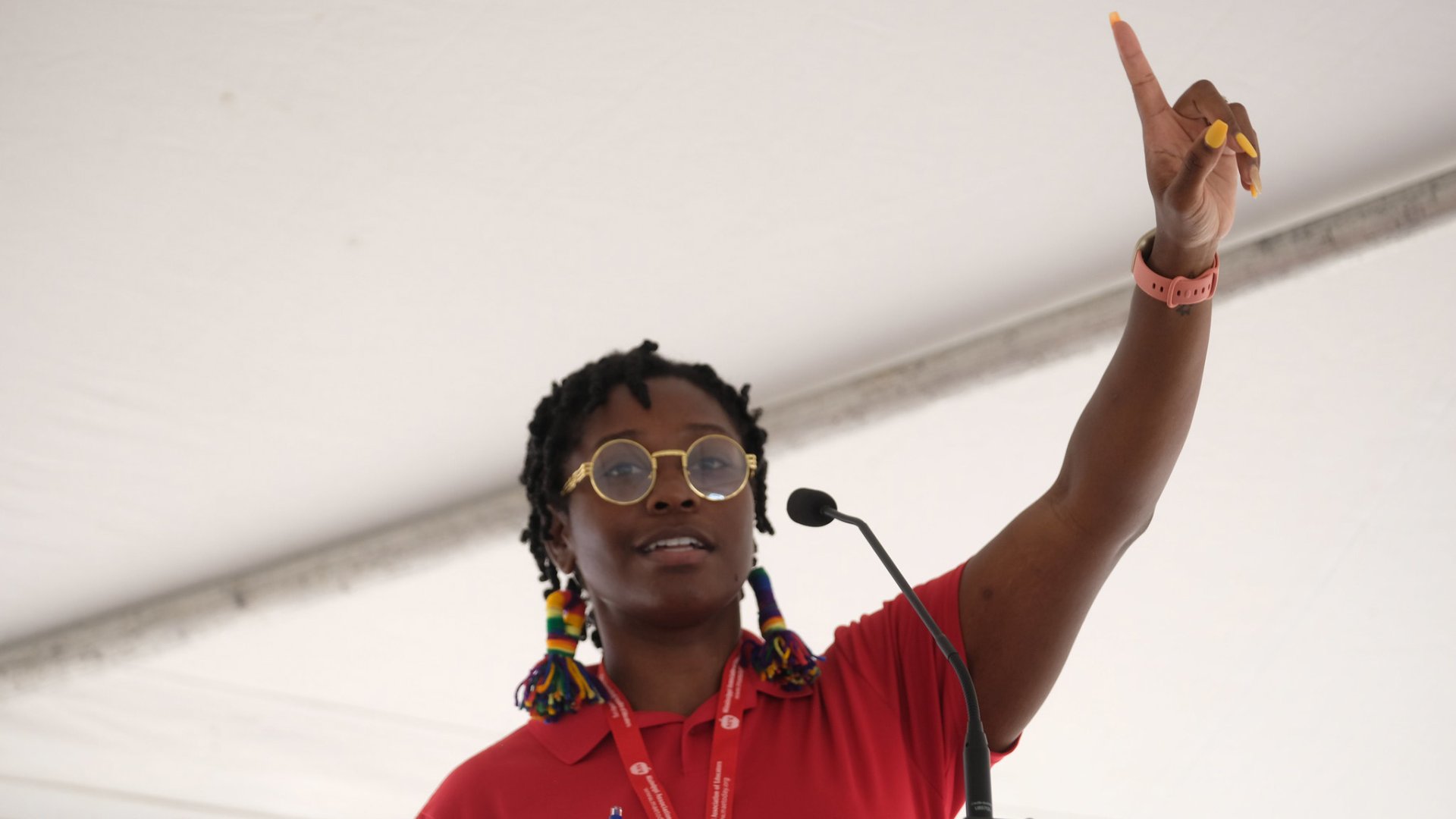
Not all of educators’ speech is protected. Here’s what you need to know as an employee of a public school.

Charles A. Smith Photography
By: National Education Association Published: April 3, 2023 This resource originally appeared on NEA.orgThe First Amendment generally protects the right to free speech, meaning your right to speak or not speak, your right to write, advertise or otherwise make your views known through words.
The First Amendment also protects symbolic speech such as contributing money to political campaigns, choosing what to wear, and certain symbolic protest activities.
Speech is “free” because the government usually cannot penalize or censor it, but can place reasonable time and place restrictions on it.
But when the government is acting as an employer, the opposite rule applies. When the government is a public school, it has broad authority to limit educators’ speech on the job as well as to limit speech off the job that directly impacts the workplace.
A few key questions help determine when schools can limit educators’ speech.
The first question is the most important. Schools may control what their employees say as part of their official duties. 1 Garcetti v. Ceballos, 547 U.S. 410 (2006); Johnson v. Poway Unified Sch. Dist., 658 F.3d 954, 966 (9th Cir. 2011). Go to reference Common examples of where this is so include when educators are teaching a class, coaching a team, holding a parent-teacher conference, and driving a school bus. In those settings, the educator has much less freedom and must follow state and school district curriculum requirements. 2 See Mayer v. Monroe Cty. Cmty. Sch. Corp., 474 F.3d 477, 480 (7th Cir. 2007). Go to reference
Schools may also restrict educators’ speech so that the school remains neutral on controversial topics, but such restrictions must be even-handed and may not silence only disfavored viewpoints. 3 Weingarten v. Bd. of Educ. of City Sch. Dist. of City of New York, 680 F. Supp. 2d 595, 602 (S.D.N.Y. 2010). Go to reference
Where an educator is on the clock but not engaged in official duties there may be some First Amendment protection for their speech—for example, a private prayer said in between classes is likely protected by the First Amendment, as long as the educator does not pressure students to join. 4 See Kennedy v. Bremerton School District, -- U.S. --, 142 S.Ct. 2407 (2022). This recent Supreme Court decision was based on a narrow set of facts related to prayer, and its implications for other forms of on-duty speech will only become clear with time and additional litigation. Go to reference Similarly, a personal comment made at a time and place when educators are free to attend to personal issues may likewise be protected.
The subject of the educator’s speech also matters. Educators have the most protection when they are talking about issues of public interest. 5 Connick v. Myers, 461 U.S. 138, 146 (1983) (matters of public concern include those that can be “fairly considered as relating to any matter of political, social, or other concern to the community”). Go to reference
They have less protection when talking about something personal. Statements about a school can fall into either category. For example, the public has a much greater interest in hearing an educator argue that schools should ditch high-stakes testing than it does in hearing an educator complain that the principal is too strict.
Schools may sometimes limit educators’ speech because it is too disruptive or it is disrespectful. This may be true even when the educators are not at work and are speaking as private citizens on matters of public interest. Speech may be too disruptive when it provokes protests, complaints from students and their families, and negative attention from the broader community. 6 Munroe v. Cent. Bucks Sch. Dist., 805 F.3d 454, 466 (3d Cir. 2015). Go to reference Disrespectful speech is more likely to be disruptive than respectful speech. Courts balance the school district’s interest in controlling speech against the educator’s interest in free speech to determine if the speech may be restricted or penalized.
Professors at public institutions of higher education enjoy greater academic freedom than educators at the K-12 level. The Supreme Court has acknowledged that academic freedom in higher education is of “transcendent value” and is a “special concern of the First Amendment.” 7 Keyishian v. Bd. of Regents of Univ. of State of N.Y., 385 U.S. 589, 603 (1967). Go to reference
As a consequence, professors generally have more freedom to speak on matters of public concern in the classroom and to determine their curriculum. Speech made during the course of a professor’s official duties is likely protected under the First Amendment if the speech is related to their teaching or scholarship. 8 See Meriwether v. Hartop, 992 F.3d 492, 504-05 (6th Cir. 2021) (finding that Garcetti does not apply to speech related to scholarship or teaching); Adams v. Trustees of the Univ. of N.C.-Wilmington, 640 F.3d 550, 562-64 (4th Cir. 2011) (same); Demers v. Austin, 746 F.3d 402, 410-12 (9th Cir. 2014) (same). Go to reference
But a professor’s speech may be unprotected if it does not relate to the subject matter of their class, serves no academic purpose, or is unduly disruptive. 9 See, e.g., Buchanan v. Alexander, 919 F.3d 847, 852-54 (5th Cir. 2019) (holding that professor’s discussion of sex life with college students was not protected under First Amendment). Go to reference
This page is intended to provide general information. For specific advice, you should always contact your local union or attorney.